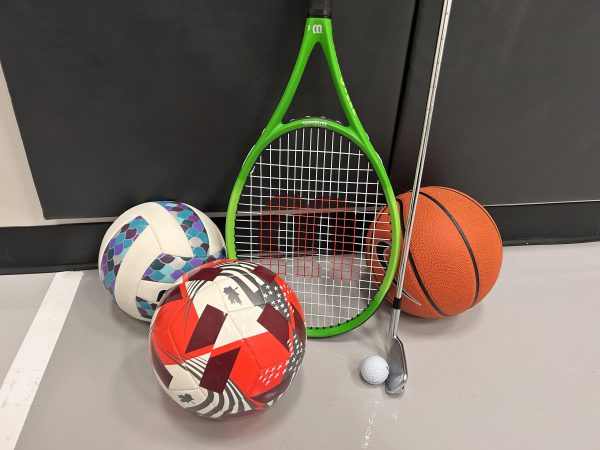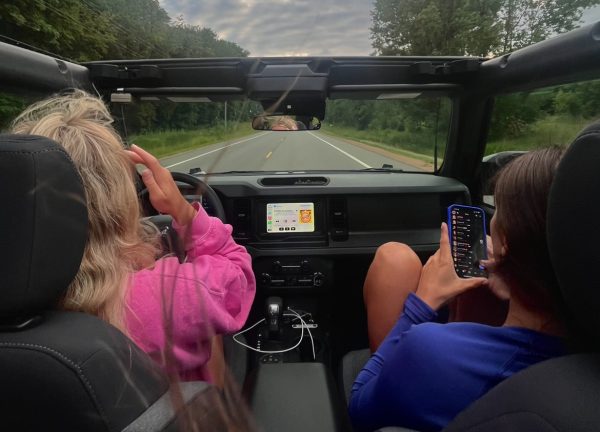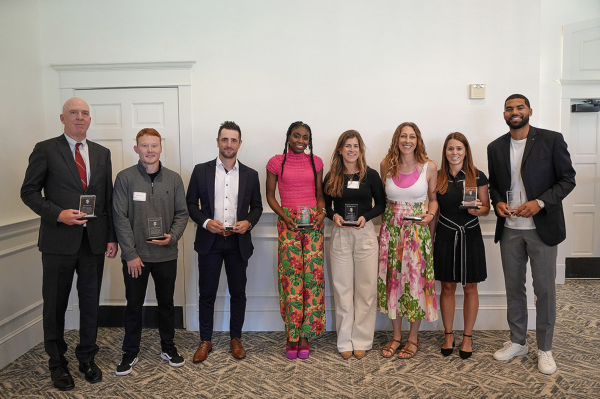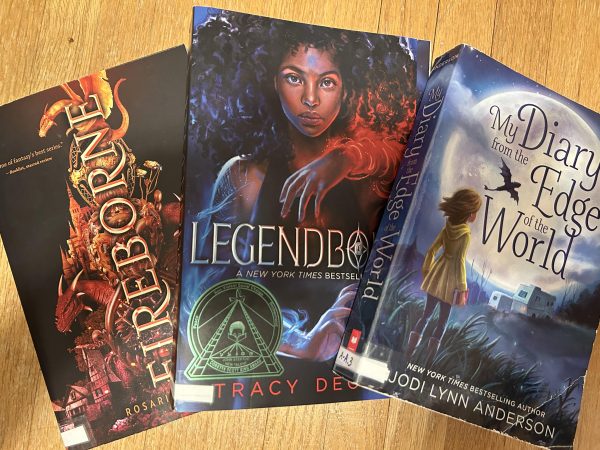How media changed in the modern era
Despite being created only 30 years ago, traditional media has quickly transformed into a variety of social media platforms that consume the daily lives of many.
News based and traditional media have transformed into a social media filled world. Social media is a beneficial tool, but often times can be overused and toxic.
In today’s age, it is nearly impossible to escape the constant media that floods our lives. From live news updates to Twitter notifications, media has become an integral part of nearly every American’s life. In an age where online news and attention-grabbing headlines have become the number one source of information for most, it’s hard to remember that only thirty years ago, the internet didn’t exist. Online news was a distant reality.
While today history teacher Ms. Megan Kern receives most of her news through the online Star Tribune, she remembers a time when news was solely on paper. “Back in the day, we had two newspapers, so one would come in the morning, and one would come in the afternoon. So you would get the real up-to-date stuff in the afternoon, unless it happened overnight somewhere. I think the Minneapolis Star was one thing that came in the morning, and the Tribune came in the afternoon,” Kern said.
Kern believes that with the internet’s increasing popularity, it has not only made news more accessible, but it has also served as a learning tool in the classroom. “Internet overall just helps bring in so much information to a lecture. If you’re talking about a story about a particular person, or some kind of contributing factor to when that person was running for office or any kind of little thing that a teacher might think is interesting, or that students might think is interesting, that stuff is so accessible on the internet. It’s almost hard not to be influenced by whatever you see online,” Kern said.
Although Kern appreciates the convenience of online news, she does fear the rapidity of it has taken away from the initial goal of journalism: to write the truth free of bias. She believes that the instantaneous nature of online news has had a drastic impact on the credibility of modern day news sources. “You [can] do anything you want [online], and it is fair game…it’s tons easier to just throw something out there…Printed news seemed to have a certain professionalism about the process of investigating the news and then reporting objectively about the news…there was generally more of an effort to get to the root of something than there is now, ” Kern said.
It’s almost hard not to be influenced by whatever you see online.
— Ms. Megan Kern
While Kern may not feel instant news sources are the most reliable, many students at BSM claim they use social media apps like Snapchat or Instagram in order to catch up on current events. For instance, sophomore Jordan O’Meara says she receives her news from her Twitter feed. “I use Twitter for news because it is easily accessible and I think it is pretty reliable for the type of news that I am interested in,” O’Meara said.
However, even while social media platforms like Twitter and Facebook have become popular news sources amongst Americans today, most people don’t download these apps in order to hear about international or local news, but rather, to connect and communicate with people they know in new and exciting ways. Junior Jane Hoyt says she downloaded both Instagram and Snapchat in fifth grade. “I just got [the apps] because a lot of kids were getting it and I just wanted to see what all the hype was about,” Hoyt said.
After years of active social media use, Hoyt finally decided it was time to pull the plug when she discovered the negative effects of social media. “[Social media] was…very time consuming and I just felt… I had to live up to an expectation that my Instagram portrayed…I think it causes people to compare themselves to what they see on social media, which isn’t always 100% credible or real,” Hoyt said.
Hoyt isn’t the only student who says her self-esteem took a hit as a result of social media. In fact, sophomore Walker Niebergall claims he too has suffered the negative effects of social media. “My self-esteem has been hurt by seeing other people post on social media,” Niebergall said.
Senior James Norkosky agrees, saying that even while he personally hasn’t suffered from low self-esteem as a result of his social media use, he can understand why some people do. “If you’re like sitting at home and someone else is posting a picture of themself in Florida, that’s probably just making [you] feel worse about [your] situation. And also, [with] Instagram, you’ll see it, and it’s like a snapshot of the good moment right there. So, if someone is not having a good moment at that time, I could see how seeing everything [on Instagram], it could seem like everything’s perfect [for someone else]. I could see how that can ruin someone’s self-esteem to a level,” Norkosky said.
There’s plenty of benefits to social media. But for me, the disadvantages outweigh the benefits.
— Junior Jane Hoyt
Senior Warren Mostrom, however, believes girls are more likely to suffer low self-esteem as a result of social media. “A lot of the guys that I hang out with…they don’t want to look bad [in their posts], but they don’t really care how they look. But when it comes to girls, you’ll see them, like, editing it and just kind of making sure they look their best,” Mostrom said.
Social media can not only detrimentally impact self esteem, but it can also be grounds for cyberbullying. Freshman and sophomore dean Mr. Seborn Yancy says that although social media has many benefits, cyberbullying is a big risk on social media. “High school students are still learning to navigate relationships. With social media, a lot of people have a platform to say things that they wouldn’t say in person to another student. So people say hurtful things on social media, they do things to other people,” Yancy said.
On the other hand, for junior Alexa Field, social media has opened a virtual world of opportunity. From uploading on her Youtube channel to viewing news on Snapchat, she enjoys all that social media has to offer. “I want to be…a broadcasting person so I think it’s good for me to have exposure…[With] social media, you get to know everything right away. You don’t have to wait for the Sunday paper…I like being able to use it to see what all my friends are doing,” Field said.
The question still stands as to whether the benefits of social media outweigh the drawbacks. For Hoyt, the drawbacks were too great to continue her social media use, prompting her to delete multiple social media apps. “There’s plenty of benefits to social media. But for me, the disadvantages outweigh the benefits,” Hoyt said.

















































